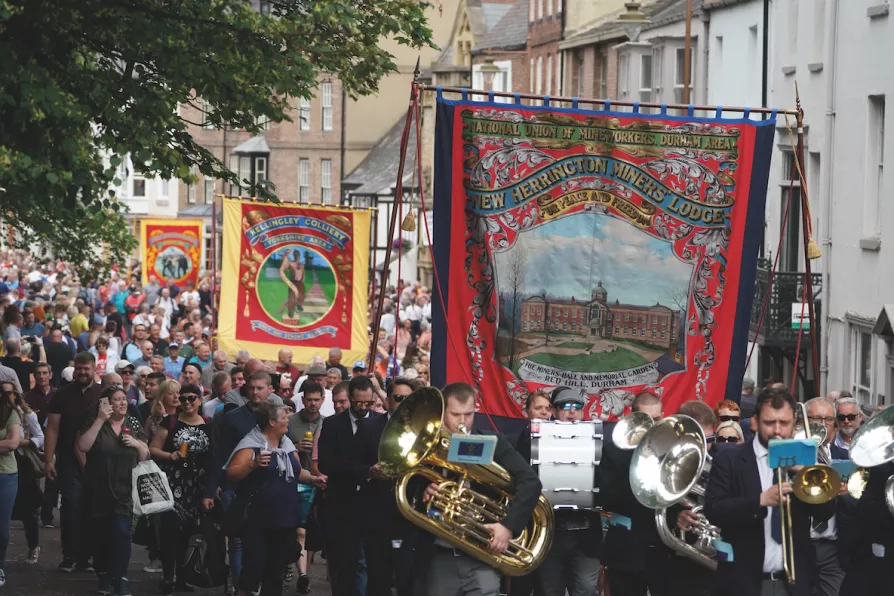From London’s holly-sellers to Engels’s flaming Christmas centrepiece, the plum pudding was more than festive fare in Victorian Britain, says KEITH FLETT


IN ITS 137th year, the Big Meeting remains a lodestar for a reviving workers’ movement, Durham Miners’ Association chair Stephen Guy told the Morning Star at the weekend.
“The theme of the Gala this year is ‘rise up’ — that derives from the last 12 months of industrial struggles we’ve had.
“And if government and employers don’t change their position, I’m afraid we’re going to have another 12 months of this, if not longer.”

Incoming Usdaw general secretary JOANNE THOMAS talks to Ben Chacko about workers’ rights, Labour and how to arrest the decline of the high street

Durham Miners’ Association general secretary ALAN MARDGHUM speaks to Ben Chacko ahead of Gala Day 2025

Ben Chacko talks to ALAN MARDGHUM of the Durham Miners Association about Reform UK‘s dangerous inroads into Durham’s long-standing Labour county council; why he cancelled his party membership; and the political class’s disconnect from working people











